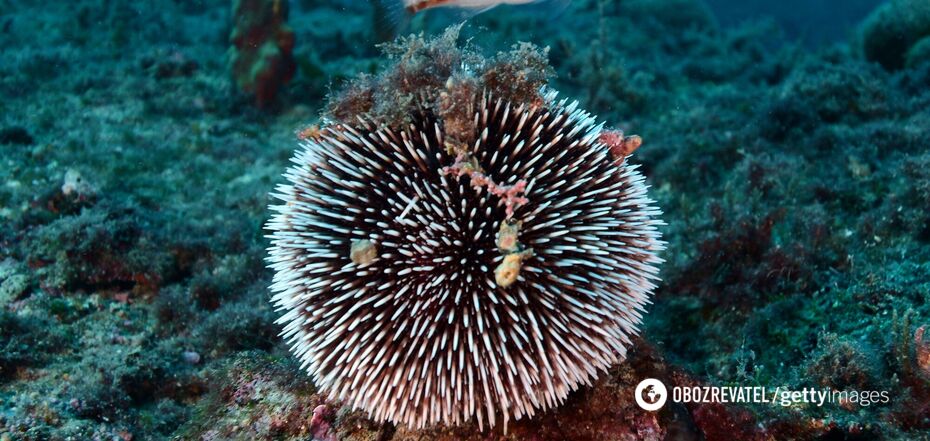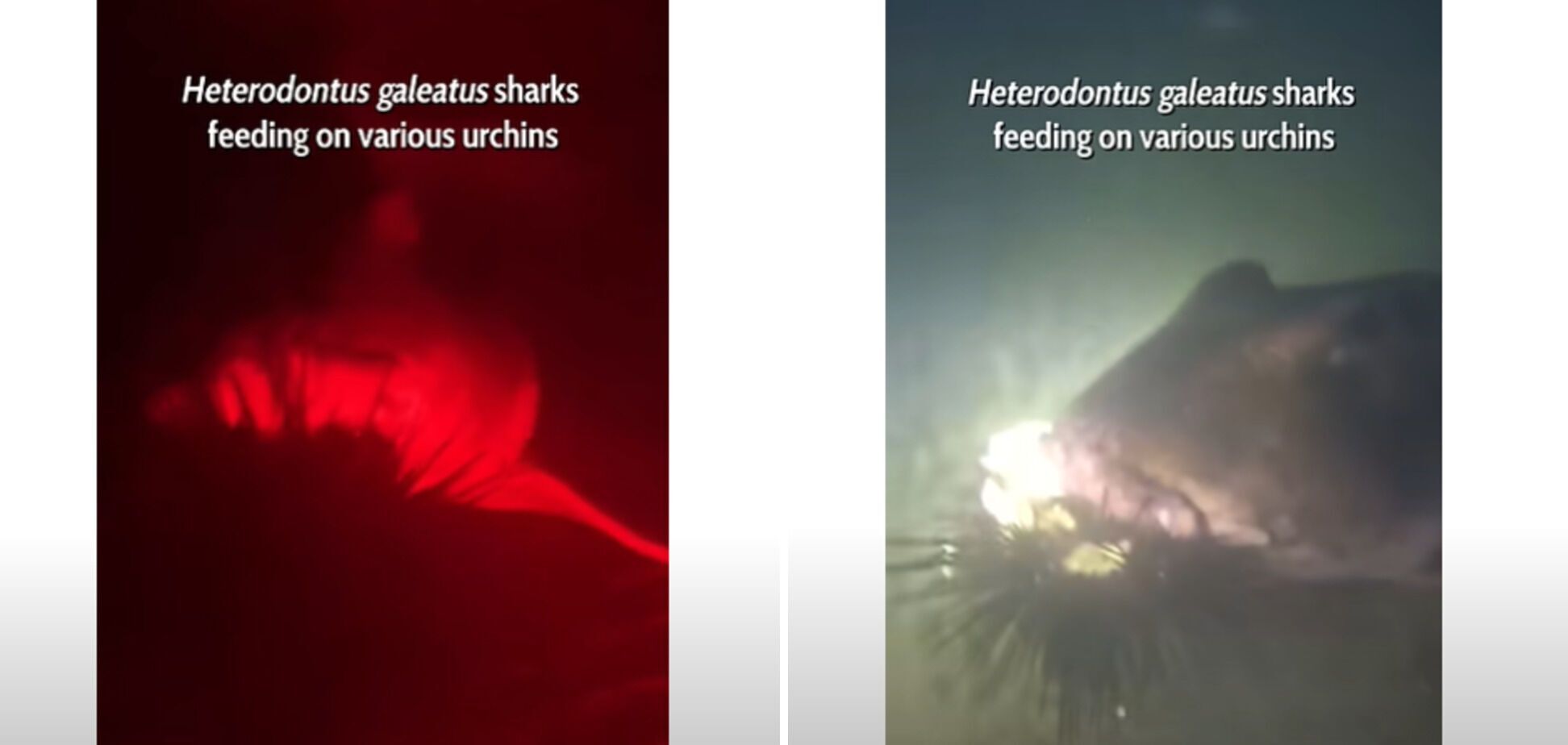News
Scientists shoot stunning video of sharks greedily devouring sea urchins with spines
Long-spined sea urchins have become an environmental problem off the southern coast of Australia. They eat algae and invertebrates, leaving barren habitats.
To understand how urchin numbers can be controlled, scientists regularly investigate the relationship between urchins and lobsters, which are considered the main predators of sea urchins. Their latest work surprised with the result – the scientists managed to shoot a stunning video showing that most of the urchins were eaten by sharks, Live Science writes.
The researchers installed several cameras near the lobster lair. They also placed sea urchins tied to blocks. The filming lasted every night for almost a month. That is, the urchins were easily accessible to predators and remained in the field of view of the researchers' cameras.
Scientists were sure that their cameras would capture lobsters eating hedgehogs. But in fact, the lobsters showed little interest in the hedgehogs and ate only 4% of them. The footage shows them passing by the hedgehogs in search of other food. But the sharks were very interested in such food for themselves as sea urchins. Both crested horn sharks (Heterodontus galeatus) and Port Jackson's sharks (H. portusjacksonii) entered the den and ate 45% of the urchins.
Not only that, but the sharks seemed to devour the large spiny creatures (over 12 centimeters) very easily – sometimes in just a few gulps.
Before this experiment, it was thought that there were not many predators that could handle urchins of this size – having longer spines, thicker shells, and being more firmly attached to the seafloor, making them harder to eat. However, the sharks attacked the urchins from their spiny side, ignoring their sharp defenses. This approach differs from other predators, such as lobsters and spinnerfish, which often turn urchins over and methodically attack them from their more vulnerable underside.
Scientists have concluded that the diversity of predators that eat large sea urchins is wider than previously thought, and this could be good news for the protection of local algae.
Only verified information is available on the OBOZ.UA Telegram channel and Viber. Do not fall for fakes!




























